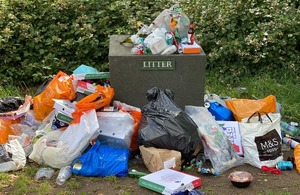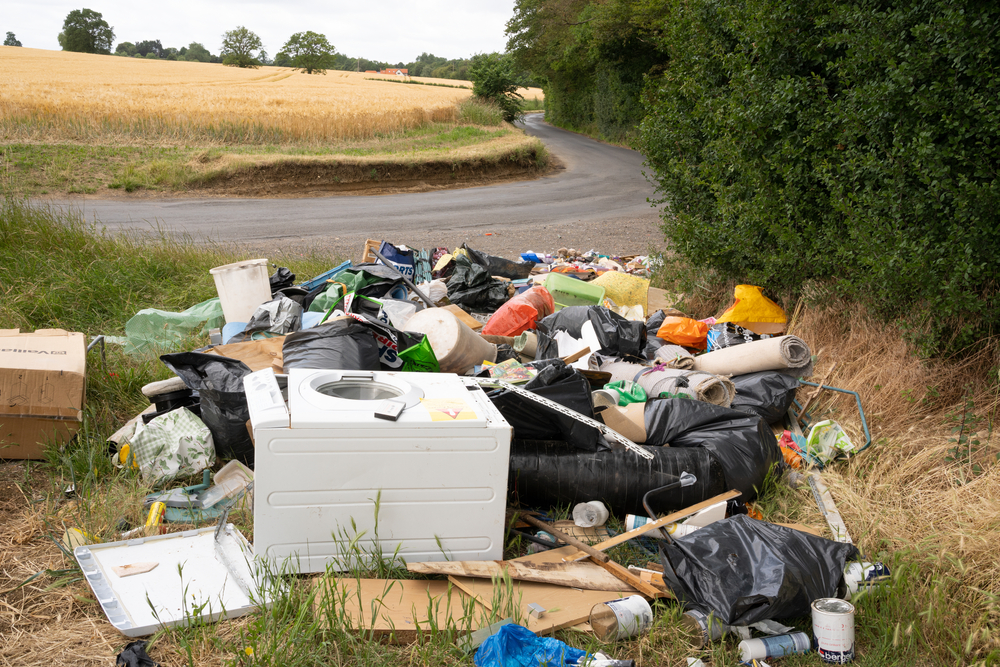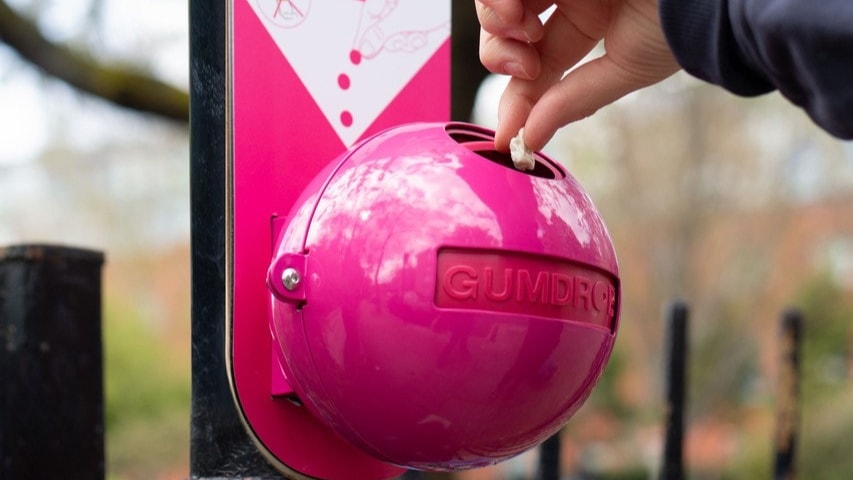
(Picture: gov.uk)
The move aims to deter individuals from engaging in these activities and ensure that those who continue to offend face tougher consequences. The new maximum fines will be as follows:
- Fly-tipping: The maximum fine for fly-tipping will increase from £400 to £1,000
- Littering and graffiti: The maximum fine for littering or graffiti will increase from £150 to £500
- Breach of household waste duty of care: The maximum fine for breaching the duty of care for household waste will increase from £400 to £600
Environment minister Rebecca Pow said: “We’re taking action right across government to crack down on anti-social behaviour and ensure waste criminals face justice – but it’s vital that communities have the tools they need to address the problem as well. That’s why we are supporting local authorities by increasing the upper limit for on-the-spot fines and ringfencing the proceeds for clean-up and enforcement operations.”
This comes after in 2021/22, councils reported having dealt with almost 1.1 million incidents of fly-tipping and issued 91,000 fines, along with other enforcement actions.
The government also plans to ringfence the proceeds from these fines for clean-up and enforcement operations. This would involve using the money raised from fines to repair the damage caused by these offenses or to fund further enforcement efforts.
Notices
In addition to the fine increases, the government has launched a consultation on ringfencing the receipts from fixed penalty notices (FPNs) for littering and fly-tipping. This consultation aims to understand how FPN receipts are currently spent and the potential impact of restricting their spending to a set list of enforcement and clean-up functions.
The government is encouraging local authorities to take a tougher approach to anti-social behaviour, emphasizing that enforcement actions should be proportionate and effective in changing behaviour and deterring others from offending. The enforcement guidance provided advises on best practices for litter enforcement by local authorities and emphasizes that enforcement should not be considered a means to raise revenue.
The announcement aligns with the Prime Minister’s Anti-Social Behaviour Action Plan and aims to build stronger communities. The government is taking various measures, such as increasing police presence in anti-social behaviour hotspots, launching youth club initiatives, and supporting councils in tackling waste crime, to address these issues comprehensively.
In another effort to combat anti-social behaviour, more than 50 councils throughout the UK will benefit from a funding allocation of £1.2 million from the Chewing Gum Task Force. This funding will be utilized to remove discarded chewing gum from streets and prevent further littering. The aim is to tackle the issue at its source and maintain cleaner public spaces.
To address waste crime, the higher fines implemented to combat littering and fly-tipping will be accompanied by broader efforts from the Department for Environment, Food and Rural Affairs (Defra). In April, grants totaling £775,000 were announced to assist councils in implementing various projects aimed at cracking down on fly-tipping. Benefiting from these grants, 21 local authorities will implement schemes such as roadside CCTV installations, social media campaigns in Plymouth, and targeted surveillance in hotspot areas in Pendle.
Furthermore, Defra has revealed plans to abolish fees for disposing of household do-it-yourself (DIY) waste at recycling centers. This decision aims to encourage responsible waste management by alleviating the financial burden associated with proper waste disposal.









Subscribe for free